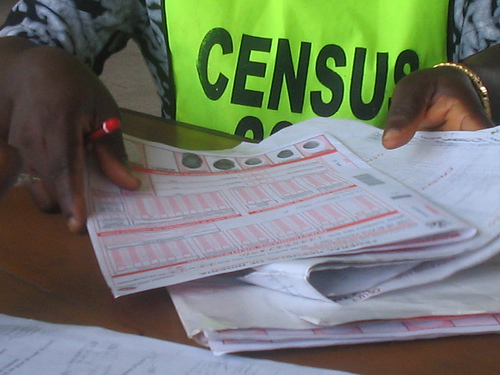A statistician, Dr Olusanya Olubusoye, has advised the Federal Government to adopt alternative census models, rather than the current estimated model, to measure the nation’s population for effective planning and development.
Olubusoye, a lecturer at the Department of Statistics, University of Ibadan gave the advice in an interview with the News Agency of Nigeria (NAN) in Abuja.
The don said most countries had moved from estimated model and decennial census (conducted every 10 years) to adopting alternative census models.
“A number of alternative census models are now available and these include: The rolling census, register-based census and virtual census which involve the linking of registers to surveys and administrative sources.
“The register-based population census could be a panacea to the challenge of conducting national population census in Nigeria.
“Some of the available administrative registers in Nigeria with potential use for census taking include: voters register which currently has over 70 million people in the database, Tax Identification Number (TIN) register.
“National Identity Management register, Bank Verification Number (BVN) register, National Driving Licensing register and vital registration of births and deaths which National Population Commission (NPC) is mandated to undertake,’’ he said.
“Why is it difficult to link these databases of registers collected by government agencies for the purpose of producing census figures for the country?’’
According to him, the models are even more credible than the traditional headcount.
Olubusoye, however, questioned the estimated population figures recently announced by the Chairman of NPC, Mr Eze Duruiheoma at a conference in New York.
The NPC has put Nigeria’s current population at 198 million people with urban population growing at an average annual growth rate of about 6.5 per cent.
“The figures, according to him, are estimated (underline estimated) rather than actual. For me, this is the issue of greatest concern.
“ In some countries, the census is held every 10 years (decennial census) or at any regular interval below 10 years as recommended by the United Nations.
“In Nigeria, there is no clear cycle for conducting the census.
“The last census was held in 2006 and another round should have taken place in 2016, but we are in 2018 with no clear announcement regarding when the next census will be conducted.’’
Olubusoye said it appeared the country was not willing to move away from the traditional approach.
He said that Nigeria was not willing to move away from the traditional approach of conducting population census, based on complete enumeration of statistical units or persons in the country.
The don said that many countries were now migrating from this approach for a number of reasons.
“Some of these reasons are: First, to reduce the statistical burden on citizens, as most of the information solicited during the census taking already exists in many government and private databases.
“Second, to reduce the complexity and the growing cost of labour, equipment and materials, security, administrative and others associated with census operations.
“Lastly, to improve the frequency of outputs from every 10 years (decennially) to every five years (quinquennial) and possibly at higher frequency.’’
Olubusoye said the dynamic nature of the modern societies had led to the rapid increase in the demand for statistical information.
He said it had also led to demand for statistical information and the need for more frequent updates which were not possible with the traditional censuses.
“Sometimes, the result of the traditional census data may have been out-of-date even before it is published.
“Therefore, it is generally acknowledged that the traditional census taking approach is extremely expensive in operation and it requires a lot of planning, administration, work with collection, checking, registration and coding.’’ (NAN)

